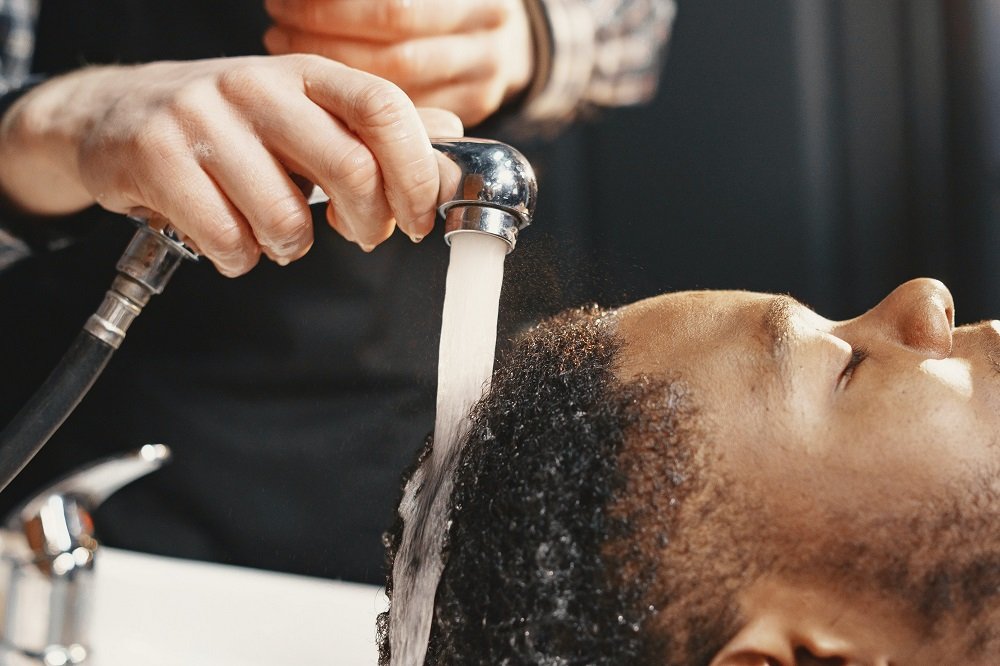Can Hard Water Cause Hair Loss?

The definition of hard water is water that has a high mineral content. This means the water contains calcium, magnesium, bicarbonate, chlorides, and sulphates. Many of these aren’t good for your scalp and hair. Does hard water cause permanent hair loss? Find out more…
Testing for Hard Water
If you think you live in a hard water area there are a few simple tests to prove it:
- Try to lather soap in a cup of water. If it foams it’s good and soft.
- Fill a clear bottle with water. Add 10 drops of liquid soap and shake. If there are plenty of suds the water is soft.
- Add 20 drops of liquid soap to a clear bottle of water to establish the hardness of your water. If suds form the water is slightly hard. If you need to add 50+ drops the water is very hard.
- Or you can check with your local council.
Hard Water and Hair
Washing hair with hard water makes it difficult to create a good lather. And tough to rinse your hair properly. Hard water tends to make hair feel rough and tangled. Dissolved minerals can stick to the surface of the hair causing discolouration and brittleness.
Other issues can include dry, dull, and lifeless hair, split-ends, thinning, and eczema of the scalp. In extreme cases, hard water hair loss is apparent as hair becomes increasingly weak.
When calcium comes into contact with your hair and scalp this can cause calcification. This may start to restrict the blood flow to the hair follicles and cause a scalp inflammation. Research has shown that this process can cause hair loss.
Hard Water Hair Loss Care Tips
Hard water does aggravate the rate of hair fall and can damage the hair texture. But it shouldn’t cause permanent hair loss. Try these guidelines for keeping hair loss to a minimum:
- Use a water softener and hair damage can be eliminated. They work by removing calcium and magnesium from the water supply. Leaving soft water that helps your hair. And your scalp.
- You can buy clarifying shampoos and conditioners that are specially formulated to combat hard water issues as they gently strip away any build-up. Use a deep conditioner regularly to prevent drying.
- Try adding two tablespoons of white vinegar or lemon juice to warm hard water and use it as a final hair rinse. The shampoo washes off more easily as the hair shaft flattens.
- Use magnesium oil in homemade shampoo remedies to counteract the effects of calcium deposits.
- Install a water filter on your shower head to keep the chemicals out.
Get Advice From The Hair Professionals In London
Book an appointment with your experienced hair stylist to discuss any problems you’re having with hard water issues and your hair. You’ll be provided with all the advice you need. And the latest technologies in hairdressing will be used to ensure your hairstyle is everything you desired.
You’ll leave the salon looking wonderful. And feeling confident that you can deal with any hard water problems effectively. And your hair will stay healthy.

